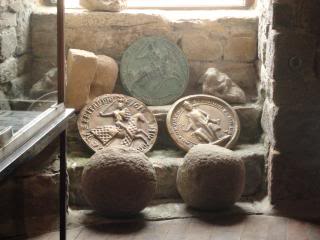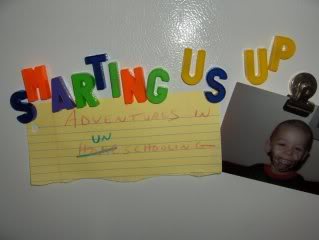Good judgment

Without "judgment," how on earth can someone "use good judgment"?
photo by Sandra Dodd
-=- to change course is to threaten your "membership" in that community (at the extreme end) or at minimum, you may be seen as someone who is "judging" your friends or family-=-I responded:
That whole "judging" think is awkward, isn't it? Because without judging what one already knows and has done to be less valid or valuable than what one could have done, or might do now, no one can do better. So we DO end up "judging" (comparing, evaluating) what other parents and families are doing. It can't be helped.—Sandra Dodd
original, on facebook
"Distinctions are the backbone of human intelligence. For example, with the distinction: 'You have a Box; you are not your Box,' you enter a completely new level of competence in your business relationships and communications skills."
I really like "Distinctions are the backbone of human intelligence."
DARN it, that section of their site is gone. Well, I liked it. It was from something called "Callahan Academy," now long gone. No single author was credited.
Janet, on the Unschooling Discussion list, wrote that and sent the link.
I responded:
But the little kid hadn't.
That's a long article, but worth reading for anyone interested in art, psychology, how things are valued, context, culture, self esteem, finances 🙂... [see note below]
There's also duty and responsibility, though. Probably lots of those people were going to meet someone and didn't want the other person to have to wait, or they had the keys to the place they were going, and things like that. Faulting them all seems harsh.
Thanks for bringing that, Janet.
People say "It's bad to compare kids" or "...bad to compare your family to others." People say people should consider things without judgment. Are people right?
Here is the transcript, on comparisons (of kids, of ideas) and of the concept of judgment:
Transcript of Chat on Comparisons and Judgment; May 11, 2009
Good judgment
 Without "judgment," how on earth can someone "use good judgment"? photo by Sandra Dodd |
I thought of quoting from this blog, but I don't want to spoil the experience of reading the story as it's presented. As an intro, I will say that it involves comparisons of and by two boys of the same mother whose experiences are different, and who are seeing each other's lives unfold.
The mom, Denise, wrote: "I'm a married mom of three grown kids and one little guy. Almost a decade ago, I homeschooled two of my older kids for a few years. Now, although I may be a little rusty, 7-year-old Logan and I are embarking on our own homeschooling adventure." "Golden Ticket"

I admit I love her on [a series she was on]. But oh, how I wish she was anti-circumcision, too.That was WAY off topic.
It might be worth considering not wanting any one person to provide everything for any other one person. By that I mean if you like something she does and benefit from watching a show she's on (or whatever it might be) it seems wrong to criticize her for not agreeing with everything.
It happens to me. People want me to support/do/be EVERYthing they themselves like/do/want, and complain if I am not vegan or protest-marching or religious or petitioning to change homeschooling laws in some particular country in another hemisphere. Maybe it should be enough that they like Just Add Light and Stir, without then telling me what I should think and do (and write and spend time on) about other issues.
Maybe there's something natural about it, but it's not logical or fair.
a mom named Sue wrote this; emphasis is mine
I definitely can relate to the sense of isolation and outside-the-herdness. It is a challenge psychologically, as humans are social creatures and wired to feel that social belonging=safety. That innate feeling of being exiled though can be defused, in my experience.
I think I came to unschooling (after embracing natural childbirth, extended breast feeding, etc) for the wrong reasons, and I paid a price for that, as did my kids, to some extent.
I began unschooling because I was afraid of damaging my kids. I wish that I could have dropped the fear. The fear of c-sections. The fear of autism. The fear of sickness. The fear of emotional distress. All those fears made life seem fear-filled and dangerous and slowly accreted and killed my sense of joy.
I've gotten it back (after a long journey with chronic illness that was very much about my thinking, rules, roles, and fear) and I am very grateful for that. My kids are 15 and 18 now and I can't know how different they would have been if I'd been more joyful and happy and less fearful over their childhoods. They are two pretty cool people, however, so I have to trust that they are exactly who they need to be.
I wish that I could have chosen to unschool out of a desire to give my children a great childhood rather than out of a fear of "wounding" them, however.
When I was *afraid* of kids being wounded, squelched, or damaged, I *hated* hearing other people be negative about their kids or seeing them actually treat them poorly. I flinched internally and I'm sure I communicated that at a sub-verbal level. So I felt even more disconnected from peers because I was actively withdrawing from them and judging them. I was sure my way was the only right way. The judgments I cast on them I also burdened myself with, and the perfectionism and self-criticism were exhausting.
To find my peace, I needed to defuse the fear and the judgment that I was carrying against others (and projecting onto them, believing that they were judging me right back).
I needed to find an understanding that felt real and valid to me, an understanding that everyone's got a path in this life and I can't know what's best for them. Maybe the mild (or horrible) childhood pain creates the ground for great understanding, compassion and personal growth as an adult. (That inspiration photo/quote going around the internet that we don't judge trees for growing into unique shapes so why do we judge humans, was helpful.)
So I worked hard on my judgments of others. I actively sought to understand how the way in which they parented could lead to positive outcomes (outcomes I couldn't foresee or maybe couldn't value as highly but would still be considered a valuable outcome.)
As I did this work, I became less judgmental and felt less judged by others.
It let me speak about unschooling to extended family in more calm and flexible ways. I could reassure them that we were not wedded to a philosophy but were observing what our kids needed and wanted and were willing to make changes and maximize opportunities for them.
I still shy away from people who are actively angry/sarcastic/negative about their kids or children in general, but more out of a conscious choice than a reactive flinching.
And I can now see more clearly the people I know who are making more conventional parenting choices. I can discern who is basically affectionate and loving with their kids and I hang out with them. And I can give feedback within the framework of their parenting paradigm and sometimes they even find it useful now!
For me, learning how to unschool positively rather than fearfully led to the unraveling of a lot of painful thinking and fears, a dropping of judgments about myself and others, and an ability to connect with the happier and kinder people around me, even if they were raising their kids more conventionally.
Unschooling truly isn't for every parent. (I think it could be good for every child, but how can I really say that with an N=2 sample group?) Grokking that deeply helped me to feel less judgmental, and to feel less judged by others, perhaps.
This young girl and her family though, enjoy horror. I am not judging...Though believe that according to data it can create PTSD.I responded (edited together from two comments):
Not to be judgmental, but that's bullshit.Did my magic words remove the judgment? "I am not judging" didn't change your summary that they "enjoy horror" and that "according to data"... (another "expert" you've recruited to your team) they are damaging themselves.
You're complaining about people's judgment, without using the word. You're being judgmental, and denying it.
If you can shake it all off and start clean, you might learn a lot!
There's a range between discernment and "being judgmental," and it's wrong to condemn all judgment. (and I linked this page)
She wrote:
No judgement - No sin is worse than any other sin in Gods eyesI wrote:
I think the ten commandments outrank technicalities of diet and the components of woven cloth. I'm pretty sure that killing one's mother is worse than giving her a dirty look.She backpedalled:
Oh yes most definitely!! I agree!! But as i follow the word and learn more everyday trust me there are sometimes i wished i never read it cause sometimes i wish i can find something that says i can judge or i can be upset with someone and then all i get is the ultimate thing our Lord wants us to do and thats love one another whether you want to or not-I could not help judging her to be a person who was writing just to see her own pixels.